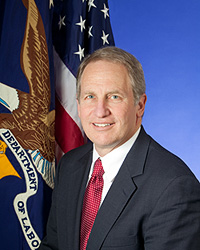News
A NIOSH Science Blog post
National Protect Your Hearing Month – Time to fill the “know-do” gap
A variety of NIOSH blogs spread the word about hearing loss prevention
October 30, 2017
EPA reg helped reduce arsenic in U.S. drinking water
Study shows federal government plays critical role in protecting human health
October 27, 2017
When your heart skips a beat…it’s not good
Men develop irregular heartbeat earlier than women
October 27, 2017
Never miss the latest news and trends driving the safety industry
eNewsletter | Website | eMagazine
JOIN TODAYCopyright ©2024. All Rights Reserved BNP Media.
Design, CMS, Hosting & Web Development :: ePublishing









